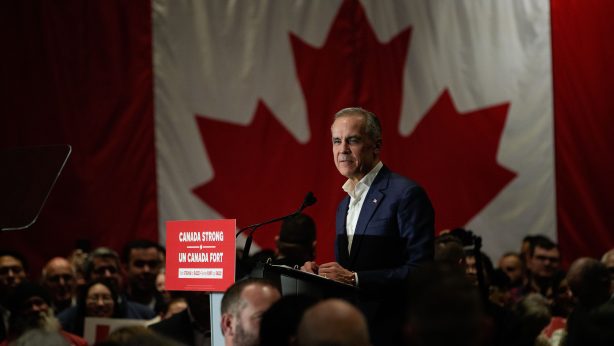Manitoba nurses bracing for cuts
This week’s edition of who is saying what about public health care is compiled by Pat Van Horne.
Manitoba Nurses Union warns members to brace for cuts
“Since last week I’ve been hearing from nurses that are saying they’ve been told that they’re going be looking at higher nurse-patient loads, that there’s going to be discussion prior to overtime being approved . . . This is a planned approach to cut costs at the direction of the government. . . At the end of the day, it doesn’t matter whether the government says this has to come from bureaucracy. The message has filtered down from the executive team in the region (so far Prairie Mountain Health and Southern Health) to nurses through directors, through managers, that there is definitely a look at how savings can be achieved,” said Manitoba Nurses Union President Darlene Jackson to the Winnipeg Free Press, December 10, 2024
Alberta targeting health care workers’ right to strike, says Alberta Federation of Labour
“When Jason Kenney passed this law (Critical Infrastructure Defence Act) four years ago, we voiced concerns that it was far reaching, unconstitutional and punitive. . .We warned that the UCP government was willing to use all tools to stop or discourage all collective action that goes against the UCP agenda, including potential labour or worker action. . .When the bill was introduced back in 2020, it was about quashing dissent from environmentalists, from Indigenous groups. Now health-care workers are in the crosshairs . . .That’s significant, because at this moment there are more than 250,000 Alberta workers at the bargaining table. A large proportion of those are people who work in the health-care system,” said Alberta Federation of Labour President Gil McGowan, The Tyee, December 10 2024
Scurvy and COVID – metaphors for our society and health care
“This year we have learned of 27 more cases of scurvy, all diagnosed last year or this year, in the Lac La Ronge Indian Band in northern Saskatchewan. And the neglect is not confined to northern Saskatchewan. . . Scurvy is a metaphor for our times, a sign that Canada is sicker and poorer than it wants to admit. . . In Canada alone, according to a Statistics Canada report, about two-thirds of adult Canadians reported having had COVID-19 by June 2023, and one in five reported more than one infection. . .Out of those infected, 58 per cent (3.5 million people) have had longer-term symptoms. . . Social determinants of health have been understood for many years, and the COVID-19 pandemic only aggravated the harm already endured by the working poor, by Indigenous people, by old people and those with disabilities. . . The cure for ‘political’ scurvy is not for the rich to ignore the poor, but for everyone to redefine the national purpose. If we decide that every Canadian must be well housed, well fed and well cared for, then we will live in a nation as healthy as ourselves,” wrote Crawford Kilian, a contributing editor to The Tyee, December 4, 2024
Linking climate with health care – we can do better
Hospitals in Canada can become “green hospitals” and the health-care system can contribute to human and planetary health at the same time. . .The good news is many health-care organizations across Canada are already doing some of these things. But like many things in Canadian health care, what we have is a patchwork of activities, and when set against the backdrop of an overworked and under-resourced sector, climate initiatives nearly always become secondary to other priorities of the day. . . It’s time for our governments to bring our health societies and institutions together, and task them with creating a targeted climate action plan for the health-care sector in Canada,” said Dr. Wendy Levinson, professor of medicine, University of Toronto in the Hill Times, December 4, 2024
Another case for expanding universal pharmacare
“For people with cancer and their caregivers, their cost was $7.5 billion this year alone . . . There are individuals that are at lower income or fixed income individuals and [in] rural and remote locations which can really feel this impact and this burden significantly,” said Ioana Nicolau, co-chair of the scientific advisory committee behind the Canadian Cancer Society’s report on the economic impact of the disease.
“Probably the most worrisome finding is the proportion of this cost that is directly borne by patients and families . . . We need to be able to recognize when there’s cracks in the system,” said Dr. Christopher Booth, oncologist at Kingston General Hospital, professor at Queen’s University, CBC News, December 9, 2024
26 years is a long time to wait for pay equity – will it go to 27?
“I was an excellent nurse and I loved my job. But it was very difficult knowing every day we were being denied equal pay,” said retired Registered Practical Nurse Sandra Commerford, who says she is owed as much as tens of thousands of dollars in back pay from her former employer, Niagara Health, to CBC News, December 5, 2024
Chronic pain sufferer blames sexism, ageism and apathy from Nova Scotia Health
“Being female and being treated as less than, let me tell you, sexism and ageism is alive and well. . .It’s been a nightmare.This is straight-up negligence. . .Everyone is struggling right now with the cost of absolutely everything. I’m retired and I don’t have any family left in the other province . . .It shouldn’t have gotten to this point,” said Laura O’Byrne, a retired health-sector manager, who worked in several provinces, including Manitoba and the Northwest Territories, to CBC News, December 6, 2024
Telus Health – Is it public or private?
“It gives people who live in the Toronto area a new way to become attached to a family doctor within the public health-care system,” said Chris Engst, vice-president of consumer health for Telus Health, which opened its first two MyCare clinics in Victoria and Vancouver in 2020, to the Toronto Star, December 7, 2024. The executive was commenting on a story about doctors paying a percentage of provincial billings to the company to cover rent, staff and insurance.
Defend Canada’s public health care
“Granting access to health care to everyone, regardless of wealth or social position, has real, material effects. What could be more material than the difference between sickness and health, life and death? Removing that right seems like a violation of the social contract. Unlike some other puffed-up points of Canadian pride — like politeness, or hardiness in cold weather — our medicare system, and the premises that undergird it, are definitely worth protecting,” wrote John Semley, freelance writer, in the Toronto Star, December 8, 2024
Support the Canadian Health Coalition



